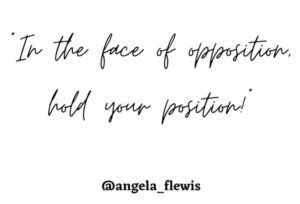What’s Love Got To Do With It?

“Love is love,” has been a hashtag for many celebrating the complex relationships within the human race. During Pride Month, it is a phrase used to simplify attitudes towards the LGBTQ+ community. It is a term used throughout the generations of racial division as a unifier of interracial relationships. Ultimately, love is rationalized as a choice.
In terms of race, preferences and/or attraction, people choose to love whom they desire. Within a prevalent view that love is good; there is no wrong found in love.
In general, people marry within the experience of mutual love. People place their faith in a God that loves. In fact, the biblical perspective demonstrates that God is love. Love within a relationship is to reach the ultimate level of intimacy and trust. It is a depth that evokes great emotion, spiritual connection and mental occupation of exploring everything that is love and the ability to maintain it.
For love to truly ignite, relationship must be established. So, what keeps love ignited? What happens when relationships break down? The answers to these questions depends on the lens of love you choose to view love through.
Unconditional love is the love often represented as deeply spiritual. It is the love shown by a God we cannot see, but can experience. A love that teaches that our human condition of mistakes and imperfections, does not disqualify us from the love of God. Unconditional love covers, forgives and redeems as we genuinely seek it. Unconditional love empowers and understands and it comforts and heals.
When viewed through this spiritual lens, unconditional love is the love of God. It can only be experienced and shared through a relationship with God. If one’s relationship with God is non-existent or obscured, can one truly experience unconditional love? If not, is conditional love a bi-product of this obscurity? Or, is love still love?
Conditional love sets standards for who is worthy to receive love. It is maintained only if conditions are respected and upheld. When those standards are not met, love is withdrawn. It is a love that is conditioned in depth. It allows relationships to connect, without bonding. It allows a disconnection that leaves disappointment, rather than scars. Conditional love minimizes risks and trades faith for formality.
Love is truly complex and may not easily be defined. It is both a spiritual and carnal aspect of the human experience based on the conditional or unconditional mode of expression, one chooses.
Could love be a combination of conditional and unconditional experiences of intimacy, connection, trust, hope, compassion and agreement?
Does love even exist within these two extremes? Is it possible that love has nothing to do with it at all?
Desire is defined as a “state of hope and longing.” As relationships develop, the desire of connection, trust, acceptance, understanding and belonging is present. It is the very foundation from which relationships are established.
Whether it is a relationship with God or another human being, this desire prompts our actions to pray, perform and pursue these characteristics of love.
Love, in all its complexities cannot be limited to a hashtag, an emotion or a concept. It is life in action, life in choice and life in relationship. It is difficult to define life and an incredible extension to attempt to define love. What can be assessed is that the phrase of “Love is Love” touches on this undefinable and infinite property that love ensues. It is an admission that one cannot simply define love, without fully understanding its source.
To find purpose, identity and navigate through life, one has to engage with the properties that love emanates. One’s ability to take risks, be vulnerable, trust, connect, find acceptance among other things, is often the driving force behind one’s choices and one’s quality of life.
Whether or not we can define, obtain or maintain love, one’s spiritual and carnal nature is certainly in pursuit of it. –Angela Fedrick-Lewis





